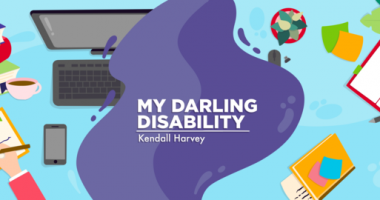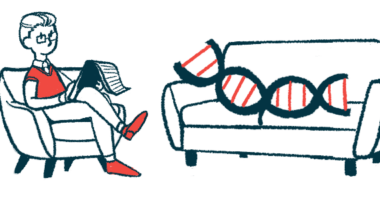FA community voices eagerness, expectations for gene therapy
Patient, caregiver perspectives of a treatment whose benefits are unknown

People in the Friedreich’s ataxia (FA) community await the possibility of gene therapies for their disease, with many saying they would participate in gene therapy trials regardless of the potential for side effects or other consequences.
Around half of the survey’s 137 respondents expected that such treatment — delivering to patients’ cells a healthy version of the FXN gene, whose mutations cause Friedreich’s ataxia — could stop the disease’s progression or minimize its symptoms.
“The findings from this preliminary study of the FA community’s perception of gene therapy trials offer insight into the education level of the community on gene therapy, their therapeutic expectations, and their perception of the disease burden,” the researchers wrote.
That’s according to the study, “Perspectives of the Friedreich’s Ataxia Community on Gene Therapy Clinical Trials,” published in Molecular Therapy – Methods and Clinical Development.
‘Clear sense of urgency’ in arriving at a gene therapy for Friedreich’s ataxia
FA has one approved, disease-targeted therapy, Skyclarys (omaveloxolone), and gene therapies for FA are among its various experimental treatments, with several in clinical or preclinical development.
Researchers at the University of Florida wanted to better understand the FA community’s attitudes toward participating in clinical trials for such potential therapies.
They distributed a survey, which was answered by 88 patients ages 14 and older, as well as 49 parents or caregivers of children with FA. The survey asked questions about disease symptoms and thoughts on gene therapy, and it included an educational handout providing basic information about gene therapy.
The vast majority of respondents thought clinical trials of importance, and most said they would be comfortable sharing their preferences about clinical trial design. Most also reported feeling knowledgeable about gene therapy, though the researchers noted that most respondents said their information came from internet searches or patient groups, rather than from healthcare professionals.
Asked about their expectations for what a gene therapy would mean, 60% of patients said they thought gene therapy would ease their symptoms, 59.5% said they thought gene therapy would stop their symptoms from getting worse, and 25% said they thought gene therapy would be a cure for FA. These rates were similar among parents/caregivers.
“Our data suggest that people in the FA community are anticipating that gene therapy will have a substantial disease-modifying effect. This is an important finding for stakeholders who are creating patient education materials,” the researchers noted.
They stressed that, at present, no data cover the use of gene therapies in people with FA, so it’s impossible to know exactly what benefits this therapy might offer.
Many respondents expressed eagerness to participate in gene therapy trials: 45.5% of patients and 39.6% of caregivers agreed that they would join a gene therapy trial regardless of the risk of side effects and other potential drawbacks.
“As we anticipated for this progressive disease with unmet medical need, there is a clear sense of urgency in obtaining gene therapy regardless of the consequences and possible side effects,” the researchers wrote.
Ambivalence seen regarding vector dosing, immunomodulator use
About a third of the respondents said that the dose of gene therapy used in trials wouldn’t affect their decision to participate or not. A similar proportion said they would forego getting a low therapy dose sooner, in a trial’s earlier stages, if it meant they could get a higher dose later.
Gene therapies commonly use modified viruses to deliver their genetic payloads. Often, treatment with gene therapy requires a person to first undergo treatments to suppress their immune systems, so that the body doesn’t attack the virus and stop it from working. Notably, these treatments can cause side effects. However, more than half of patients and parents/caregivers neither agreed nor disagreed with the use of immunomodulators in such a trial.
“The ambivalence about immunomodulation and the vector dose appears to indicate a lack of understanding about these topics,” the researchers wrote.
Almost two-thirds of participants (60.2% of patients and 63.7% of caregivers) said that the availability of other upcoming trials would be an important factor in their decision to participate in gene therapy trials. But far fewer (36.8% of patients and 22.5% of caregivers) said that the time commitment for participating in a trial would be a major factor.
Since gene therapy trials usually run for a long time by design, the researchers said these data are “encouraging” since it suggests the length of studies won’t dissuade many people from participating.








